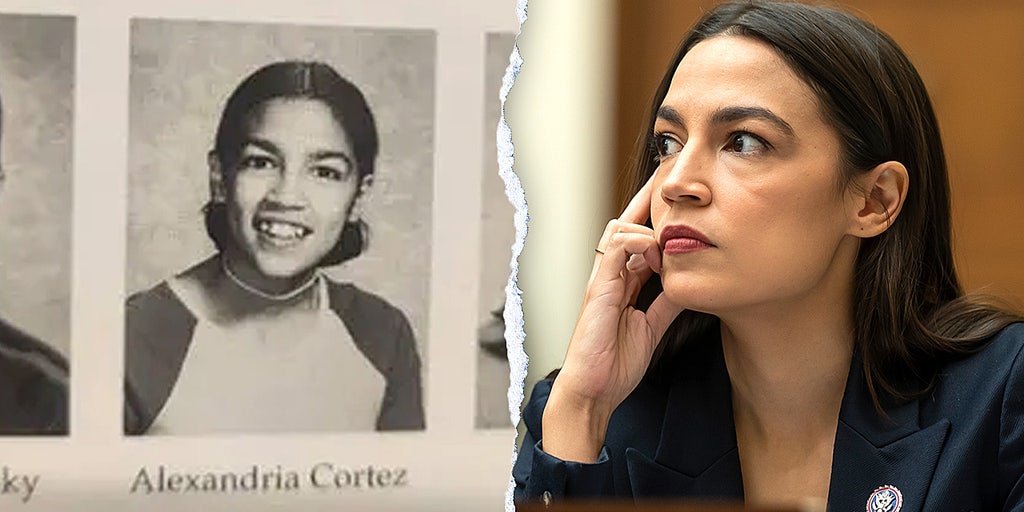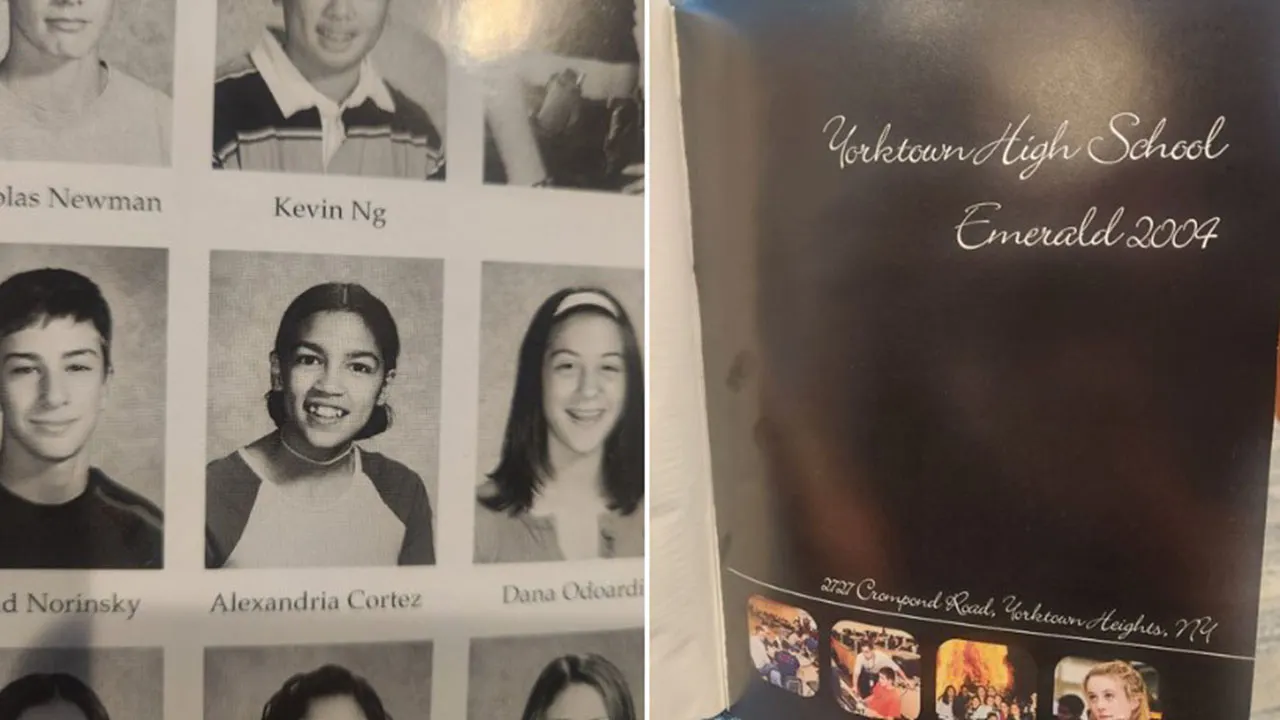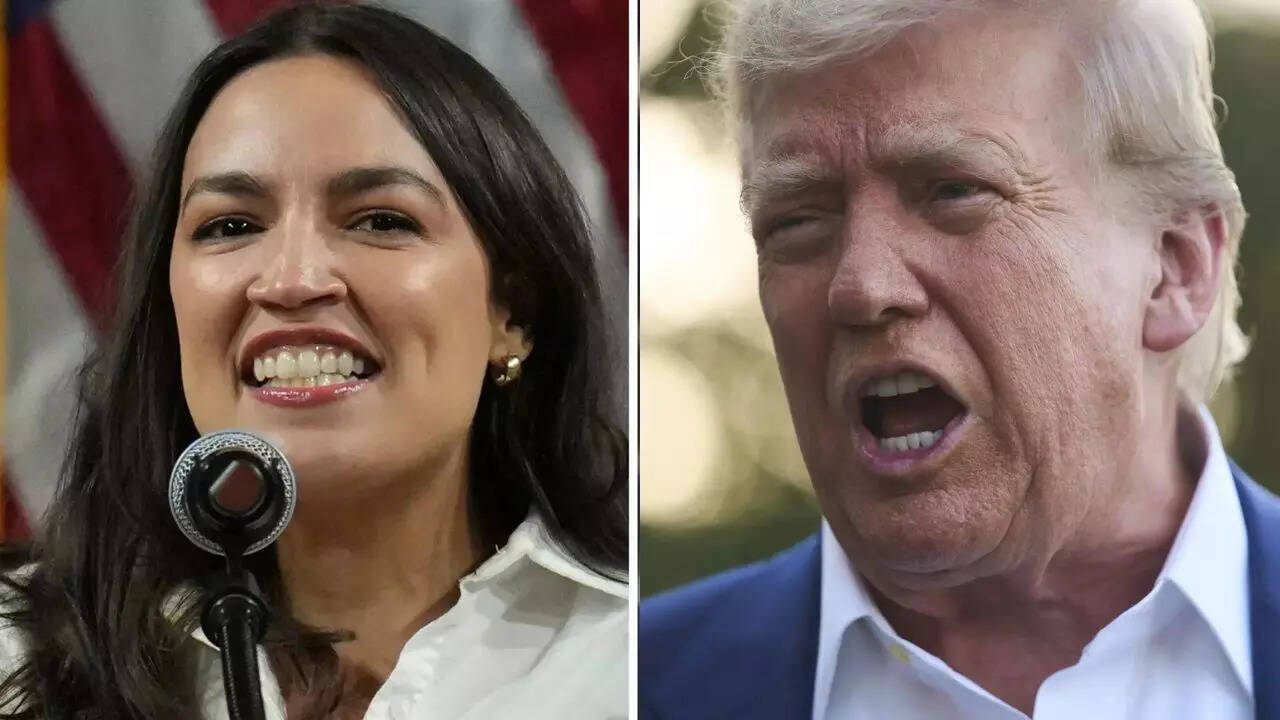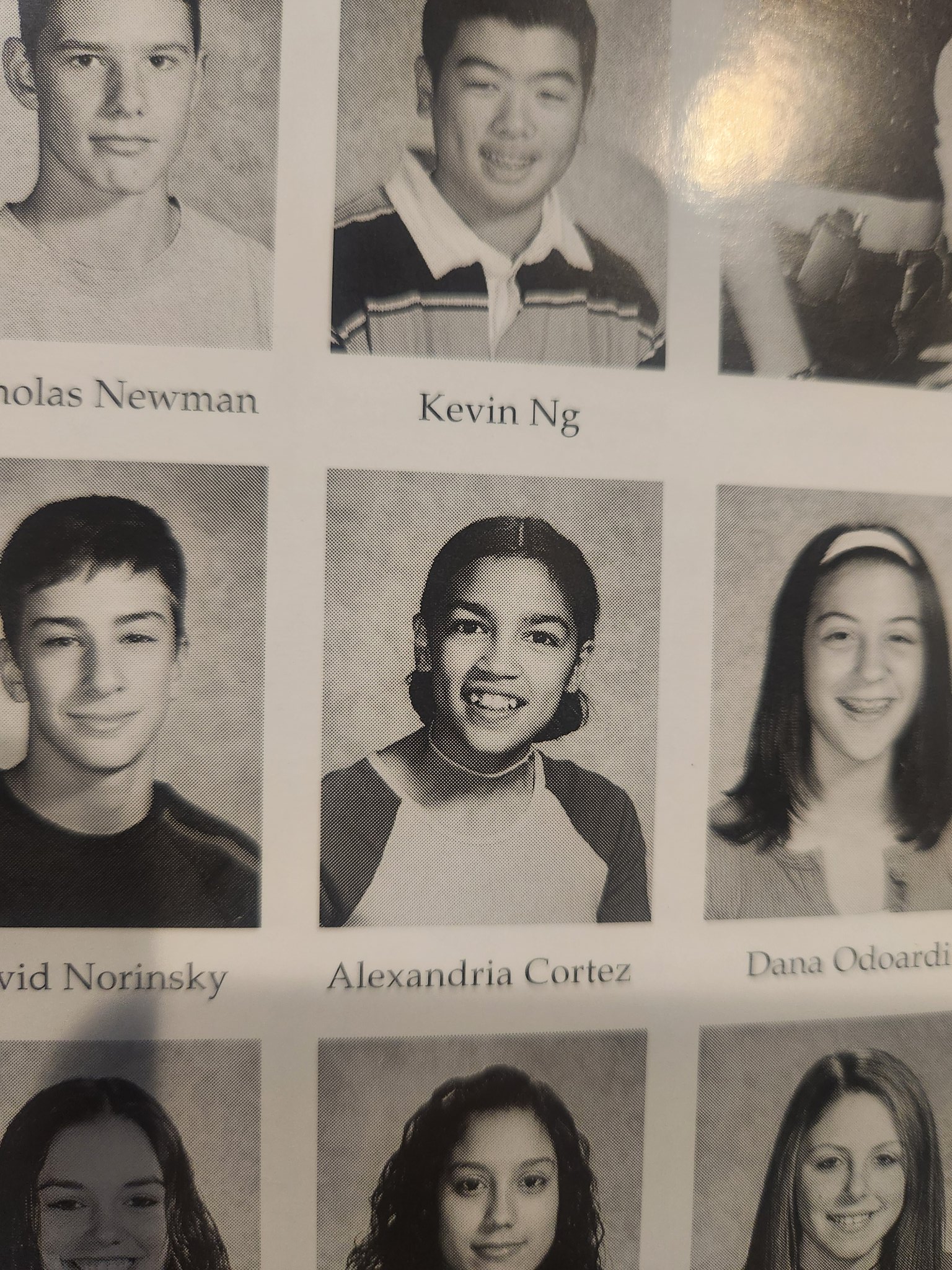
Congresswoman Alexandria Ocasio-Cortez (D-NY) is under new scrutiny after high school yearbook photos surfaced online, casting doubt on her often-repeated claim of being a proud “Bronx girl.”
The photos show that Ocasio-Cortez, often referred to by her initials AOC, attended high school in Yorktown Heights, a suburban town located about 40 miles north of New York City, far from the Bronx streets she frequently references in her political image.
This controversy erupted shortly after a public spat between AOC and President Donald Trump. The two have clashed numerous times, but this time the conflict reignited when Ocasio-Cortez called for Trump’s impeachment.
Trump fired back on his social media platform Truth Social, unleashing a long post where he criticized AOC personally, attacking her intelligence, education, and political views.
He called her “one of the dumbest people in Congress” and challenged her academic credentials, even making fun of her test scores. Trump then suggested that AOC should take a cognitive test, much like the one he claimed to have “aced” recently.
Trump also grouped AOC with other progressive lawmakers he frequently criticizes, including Representatives Ilhan Omar (D-MN) and Jasmine Crockett (D-TX). He accused them of damaging the country with what he described as radical policies and divisive rhetoric. This online attack added more fuel to the already heated political rivalry between Trump and AOC.
In response to Trump’s mocking, Ocasio-Cortez took to social media to defend herself, but she did it in a way that brought more attention to her Bronx identity. She wrote, “Also, I’m a Bronx girl. You should know that we can eat Queens boys for breakfast. Respectfully.”
This comment was meant as a sharp retort, especially since Trump grew up in Queens, another borough of New York City. AOC’s post quickly went viral and was shared widely across platforms.
However, the situation took a turn when New York State Assemblyman Matt Slater entered the conversation. Slater posted a snapshot from the 2004 yearbook of Yorktown High School, showing a young Alexandria Cortez—her name before she started publicly using Ocasio-Cortez.
In his post, Slater directly challenged her Bronx identity claim, writing, “@AOC if you’re a BX girl then why are you in my Yorktown yearbook? Give it up already.”
The yearbook photos added fuel to the debate, especially among AOC’s critics, because Yorktown Heights is widely known as a more affluent, suburban area compared to the South Bronx, which AOC frequently references in speeches and interviews.
This contrast between her schooling in a suburban environment and her strong Bronx persona led many online to question the authenticity of her political branding.
While AOC did not immediately respond to Slater’s post or the yearbook photo, she has addressed her upbringing in the past. According to her previous statements, she was born in the Bronx, but her family moved to Yorktown Heights when she was about five years old.
The move was reportedly motivated by her parents’ desire to place her in better public schools. She has shared this part of her biography publicly, explaining that while she spent her early childhood in the Bronx, her education took place in the suburbs.
This isn’t the first time AOC’s background has been scrutinized or used against her politically. During her first campaign in 2018, when she shocked the political world by defeating long-time Congressman Joe Crowley, there were already discussions about her dual upbringing between the Bronx and Westchester County.
Some media outlets at that time highlighted the contrast between her South Bronx roots and her suburban schooling, but AOC has remained consistent in her self-identification as a Bronx native.

The resurfacing of these yearbook photos adds a new chapter to the ongoing debate about AOC’s identity and authenticity. For her supporters, being born in the Bronx is enough to claim that identity, especially since her family connections and early years are tied to that borough.
They argue that her political advocacy for working-class families and urban communities reflects her true connection to the Bronx experience, regardless of where she attended school.
For her critics, however, the photos provide what they see as evidence that AOC’s Bronx image is more of a crafted persona than an accurate representation of her life story.
They claim that by emphasizing her Bronx upbringing while downplaying her suburban education, AOC is presenting a misleading narrative designed to align herself with the struggles of inner-city residents for political gain.
This debate touches on broader questions about identity, authenticity, and political storytelling. Many politicians emphasize certain aspects of their background to connect with voters.
In AOC’s case, her Bronx narrative has become a central part of her public image, helping her appeal to voters who see her as a relatable and genuine representative of working-class communities.
The Bronx, with its rich history, cultural significance, and economic challenges, has often been a symbol of resilience and grit. By claiming that heritage, AOC positions herself as a fighter for marginalized communities, which has resonated with many of her constituents and progressive supporters nationwide.
At the same time, her time spent in Yorktown Heights presents a more privileged and suburban experience that some argue is at odds with the image she projects.

As of now, Ocasio-Cortez has not issued any public response to the latest controversy sparked by the yearbook photos. It remains to be seen whether she will directly address the criticism or let it pass without comment. Given her history of engaging on social media and responding to attacks, it would not be surprising if she eventually weighs in to clarify her position.
For President Trump and his allies, the resurfaced photos offer a convenient tool to discredit AOC, someone they view as a leading voice of the progressive movement in Congress.
By questioning her authenticity, they aim to undermine her credibility and influence among voters. For Trump, who has built much of his political strategy on attacking opponents personally and publicly, this new controversy provides another opportunity to paint AOC and her allies as disingenuous and out of touch.
In the broader context of American politics, this controversy reflects how personal backgrounds and biographies continue to play an outsized role in shaping public perceptions of politicians.
In an era where authenticity is highly valued by voters, any perceived discrepancy between a politician’s story and their lived experience can quickly become a political weapon for opponents.
Whether this latest incident will have any lasting impact on AOC’s career is uncertain. She remains a popular and influential figure within the Democratic Party, especially among younger voters and progressives. Her supporters are likely to dismiss the criticism as a distraction or as an unfair attack rooted in political motivations.
However, the resurfacing of the yearbook photos and the renewed debate about AOC’s identity might have an effect on undecided voters or those less familiar with her full background.
For them, the contrast between her Bronx claims and her suburban education may raise questions about how politicians present themselves to the public.

As the political battles between Trump and AOC continue, this controversy adds another layer to their ongoing rivalry. Both figures have large, passionate followings, and their exchanges often capture national attention.
Whether it’s over policy, personal background, or social media spats, the dynamic between Trump and AOC continues to shape the political conversation.
For now, the question remains open: can someone claim the identity of a place based on their birthplace and early years, even if their education and adolescence were spent elsewhere?
In AOC’s case, her supporters say yes — her Bronx roots and advocacy for urban communities are genuine. Her critics argue no — that her suburban upbringing in Yorktown Heights tells a different story than the one she promotes.
Until Ocasio-Cortez chooses to respond, the debate over her Bronx girl identity will likely continue, fueled by the resurfaced yearbook images and the ever-present clash of political narratives in today’s America.


-1749879307-q80.webp)

